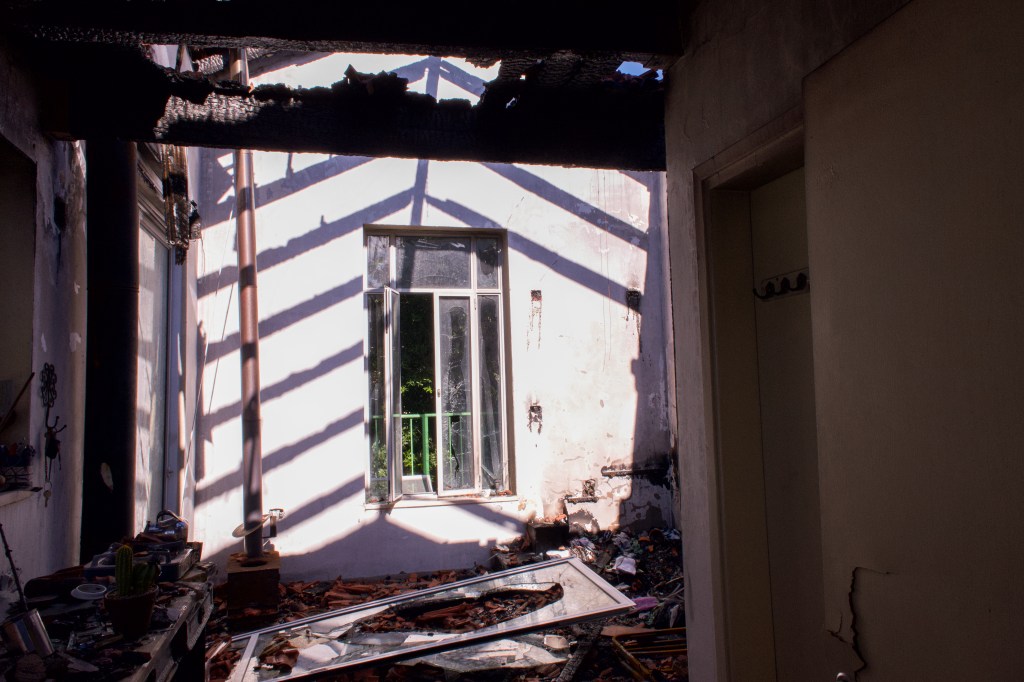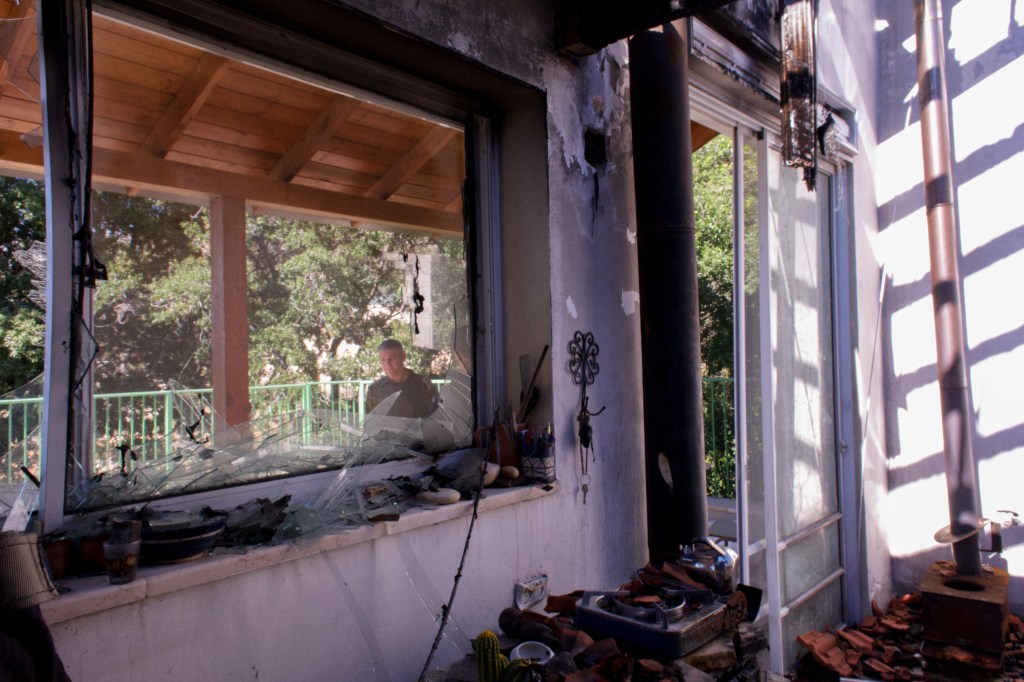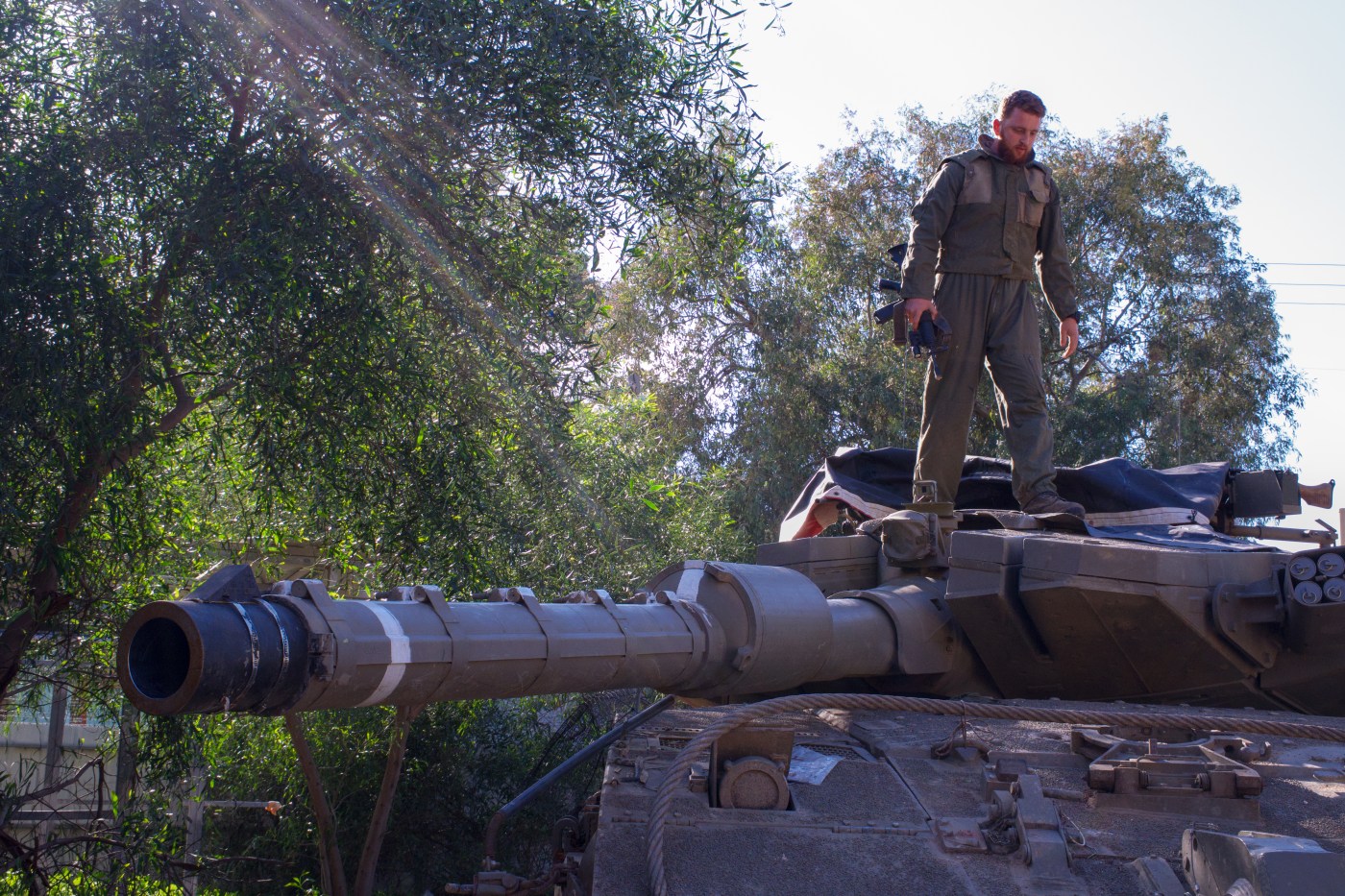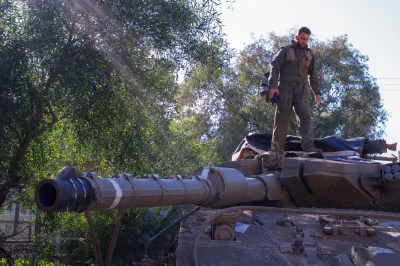HANITA, Israel—The Israeli troops stationed along the country’s northern border with Lebanon say they don’t want a war with Hezbollah, but they’re ready for one. That worst-case scenario is beginning to look inevitable as diplomatic attempts to get the Iranian-backed terrorist group to withdraw its forces north founder.
If such a war does erupt, so too will widespread devastation in Israel and Lebanon alike.
“We hope that political and diplomatic efforts will permit a change in the situation … but we don’t see any change right now,” Olivier Rafowicz, a military spokesman, told The Dispatch from an Israeli Defense Forces (IDF) outpost in northern Israel. “That’s why we are ready for any possibility and development. As you see here, there are many tanks, many forces, and the Israeli army is fully prepared to deal with any threat.”
Since the start of Israel’s war with Hamas on October 7, tens of thousands of regular troops and some 60,000 reservists have deployed to the north to fortify Israel’s border with Lebanon and defend against Hezbollah aggression. The Iranian-backed terrorist group began its own cross-border attacks on Israel within 24 hours of Hamas’ assault, launching more than 2,000 rockets, dozens of anti-tank missiles, and drones at Israel in the months since. Israeli forces have returned fire using tanks, artillery, and air strikes to target Hezbollah fighters and military outposts. Nine IDF soldiers and six Israeli civilians have died in the exchanges, but the warring sides have thus far avoided a full-scale escalation.
Still, the cross-border attacks have displaced an estimated 76,000 residents of southern Lebanon, as well at least 80,000 Israelis from northern towns and cities. With each passing day its civilians are uprooted, Israel says the window for a non-military solution shrinks and may soon risk closing for good. If Israel goes to war to restore security in the north, the Lebanese people may pay the price for Hezbollah’s aggression.
“Hezbollah is responsible for the price the Lebanese civilians may pay. Hezbollah is turning southern Lebanon into a terrorist stronghold,” IDF spokesman Daniel Hagari said Saturday, during a comprehensive briefing on the simmering conflict in the north. “Just as we have fought against Hamas strongholds in Gaza, we will not accept the danger posed to our residents and we will fight Hezbollah and all other terrorist groups that wish to harm Israel. We will return to security using all means at our disposal.”
And the fighting could reach much farther than the Hezbollah-dominated villages of southern Lebanon. Israeli Prime Minister Benjamin Netanyahu warned in December that Israel would turn Beirut, more than 60 miles away from the border, into Gaza should Hezbollah choose to escalate its attacks. The threats to Lebanon’s capital city mark a departure from how Israel fought against Hezbollah in 2006, when it launched a campaign against the terrorist group without declaring war on the Lebanese government or people.

Israeli cities would likewise feel the pain of such a war. Thanks to the help of its Iranian patrons, Hezbollah boasts some 150,000 rockets and missiles—five times the size of Hamas’ arsenal and much more precise, lethal, and long-range. The IDF estimates that even if the country’s air defenses shoot down the projectiles at their standard rate of 80 to 90 percent, the breakthrough would still result in extensive damage to Israeli civilian centers. Government officials have already begun preparing Israelis across the country for the possibility of long-range Hezbollah attacks, urging civilians to take appropriate precautions by stocking their shelters. The Israeli Health Ministry last month ordered hospitals in the north to be ready to care for thousands of wounded patients.
Because of the overwhelming strategic threat, analysts predict that the Israeli response in Lebanon would be swift and highly destructive. Speaking from the border last month, IDF Chief of Staff Herzi Halevi warned that the likelihood of such a conflict is “much higher” than in the past.
The U.S. is hoping intensive, behind-the-scenes diplomacy can get the two sides to step back from the brink. U.S. Special Envoy Amos Hochstein arrived in Israel over the weekend for talks to broker a deal for Hezbollah to relocate away from Lebanon’s southern border. The American diplomat reportedly indicated progress toward such an agreement, but history shows that a voluntary and lasting withdrawal may be a long way off.
United Nations Security Council Resolution 1701, which ended the Second Lebanon War in 2006, ordered Hezbollah to move its forces north of the Litani River—some 19 miles from the border with Israel. The measure was never properly implemented by either the Lebanese armed forces or United Nations peacekeepers, and Hezbollah has been building up its military infrastructure in Lebanon’s border regions in the years since. The group reportedly rejected a more modest, phased withdrawal proposed by Hochstein via the Lebanese government last month.
But after years of living with Hezbollah fighters just yards away, residents of Israel’s northern communities are no longer willing to ignore the threat posed by a group whose stated intent is to launch a cross-border invasion like Hamas’ on October 7.
“As much as Israel doesn’t want to go to war, 80,000 people are not going back to their homes with Hezbollah on the border,” David Daoud, a senior fellow at the Foundation for Defense of Democracies who focuses on the Lebanese terrorist group. “That’s just not a condition that I think is realistic or feasible after October 7, particularly given Hezbollah’s prior and ongoing threats and preparations to do October 7s from the northern border.”
For Kibbutz Hanita, a small community tucked in the northwest hilltops of Israel, the war has already begun. Like other cities and towns within 6 miles of the border with Lebanon, Hanita has stood largely empty since the earliest days of the war, when Hezbollah rocket fire and concerns about a terrorist ground invasion led the army to evacuate its civilians. IDF troops are largely all who remain in this once-populated and agriculturally productive stretch of northern Israel, where air raid sirens now signal incoming Hezbollah projectiles on a near-daily basis.

In response to the cross-border attacks, the IDF has launched near-daily precision strikes targeting Hezbollah military targets in southern Lebanon—a campaign Israeli officials say has destroyed some 120 observation positions, 40 weapons storage facilities, and 40 command and control centers. Hezbollah’s fighting force has also sustained significant losses, with the group reporting that nearly 180 of its members have been killed since early October.
To some analysts, the ongoing cross-border skirmishes amount to a war in everything but name. “There is a war on the northern front. Hezbollah has said it considers this a war,” Daoud said. “Wars come in different shapes and sizes. I think this is a war of attrition, of relative low intensity, but it is a war.”
But Israel’s large-scale mobilization along the northern border signals to Hezbollah that it’s prepared to fight a high-intensity conflict. Hagari, the IDF spokesman, recently told reporters that the military has deployed three divisions to the north so far. The well-armed Israeli forces are now playing the waiting game, holding the line while preparing to go on the offense if given the order. “While we would prefer diplomatic solutions, we will not hesitate to respond with force. War is not our first priority, yet we are ready for it,” Hagari said. “We will not return to the security situation on October 6.”
This message of massive retaliation is one Israeli officials have been telegraphing to Hezbollah since October. It’s a threat the Lebanese group and its Iranian backers may not be able to afford, despite continued grandstanding by its leaders. “They know that Hezbollah is always ready,” Hezbollah Deputy Secretary-General Naim Qassem said Saturday, threatening to unleash the group’s full destructive capabilities on Israel in “due time.”
Averting a war may now rely on Hezbollah’s willingness to engage in good faith diplomacy or Israel’s willingness to abandon its border communities. Neither looks particularly likely.
“We have a situation where the entire northern part of the country is basically uninhabitable, and Hezbollah is keeping about half of the IDF pinned down up north,” Michael Oren, the former Israeli ambassador to the United States, told The Dispatch. “I don’t see how this de-escalates.”







Please note that we at The Dispatch hold ourselves, our work, and our commenters to a higher standard than other places on the internet. We welcome comments that foster genuine debate or discussion—including comments critical of us or our work—but responses that include ad hominem attacks on fellow Dispatch members or are intended to stoke fear and anger may be moderated.
With your membership, you only have the ability to comment on The Morning Dispatch articles. Consider upgrading to join the conversation everywhere.